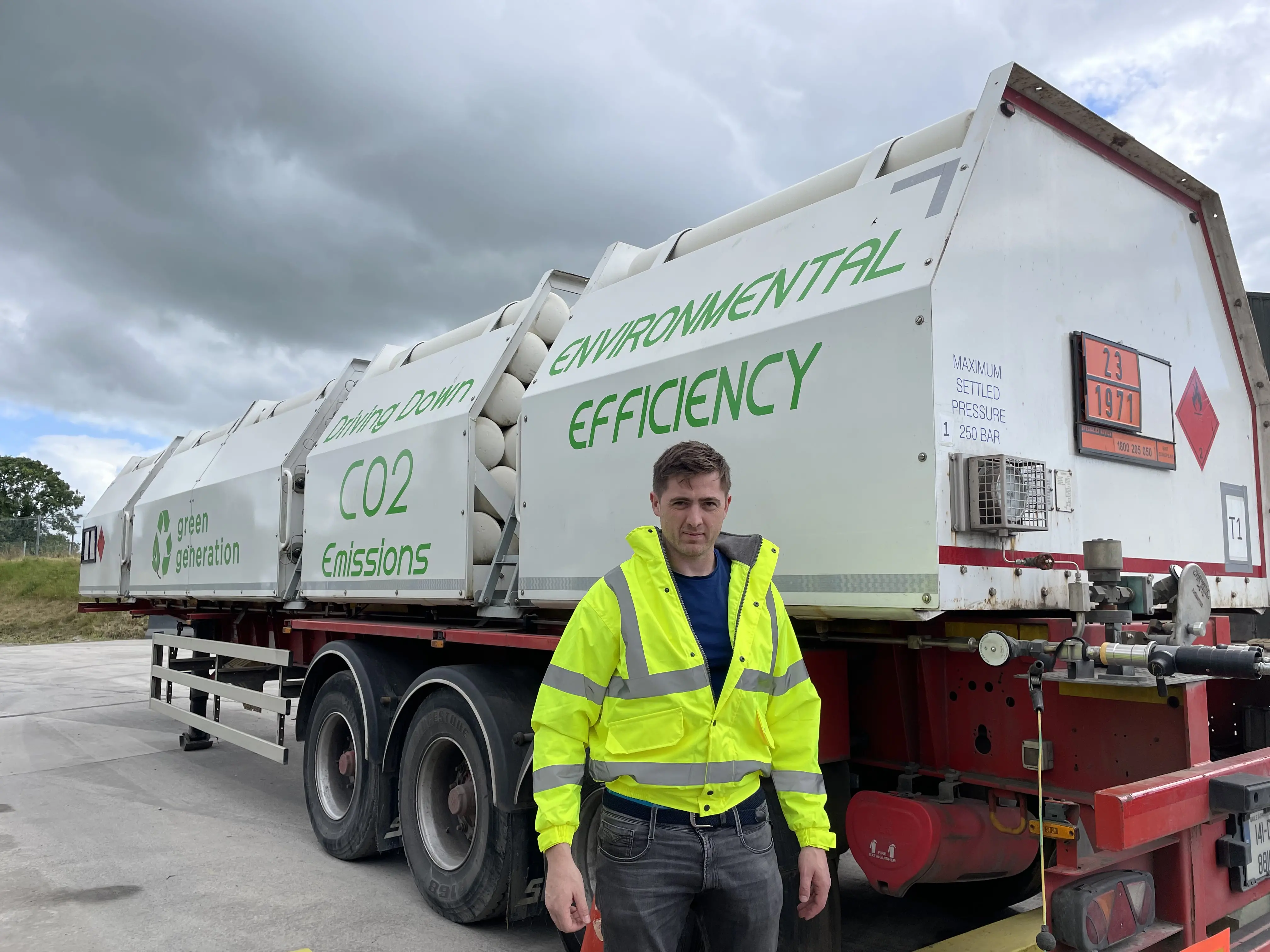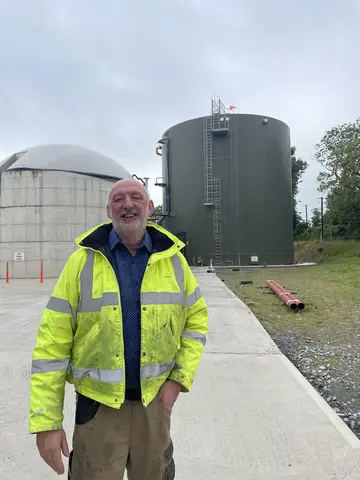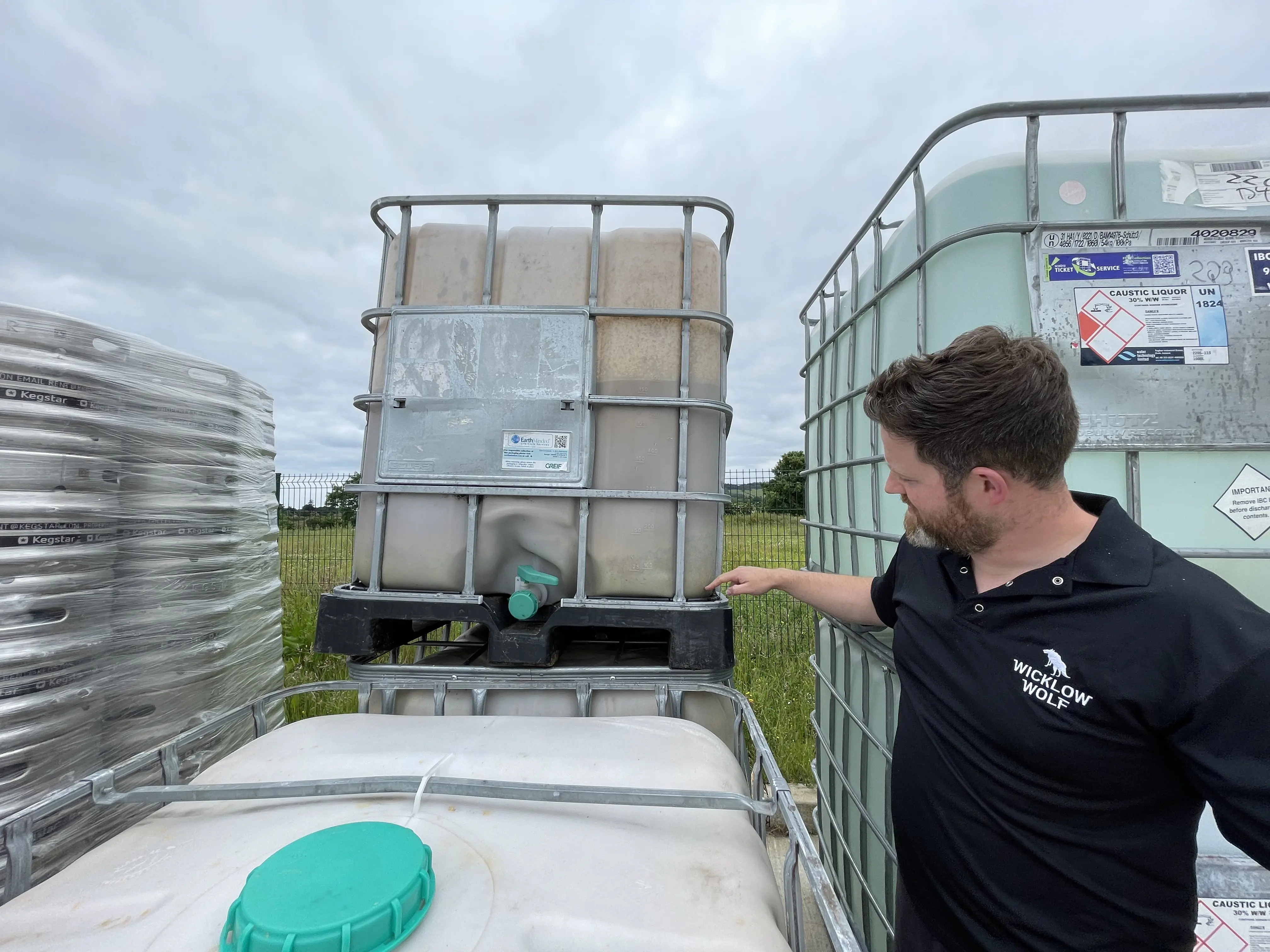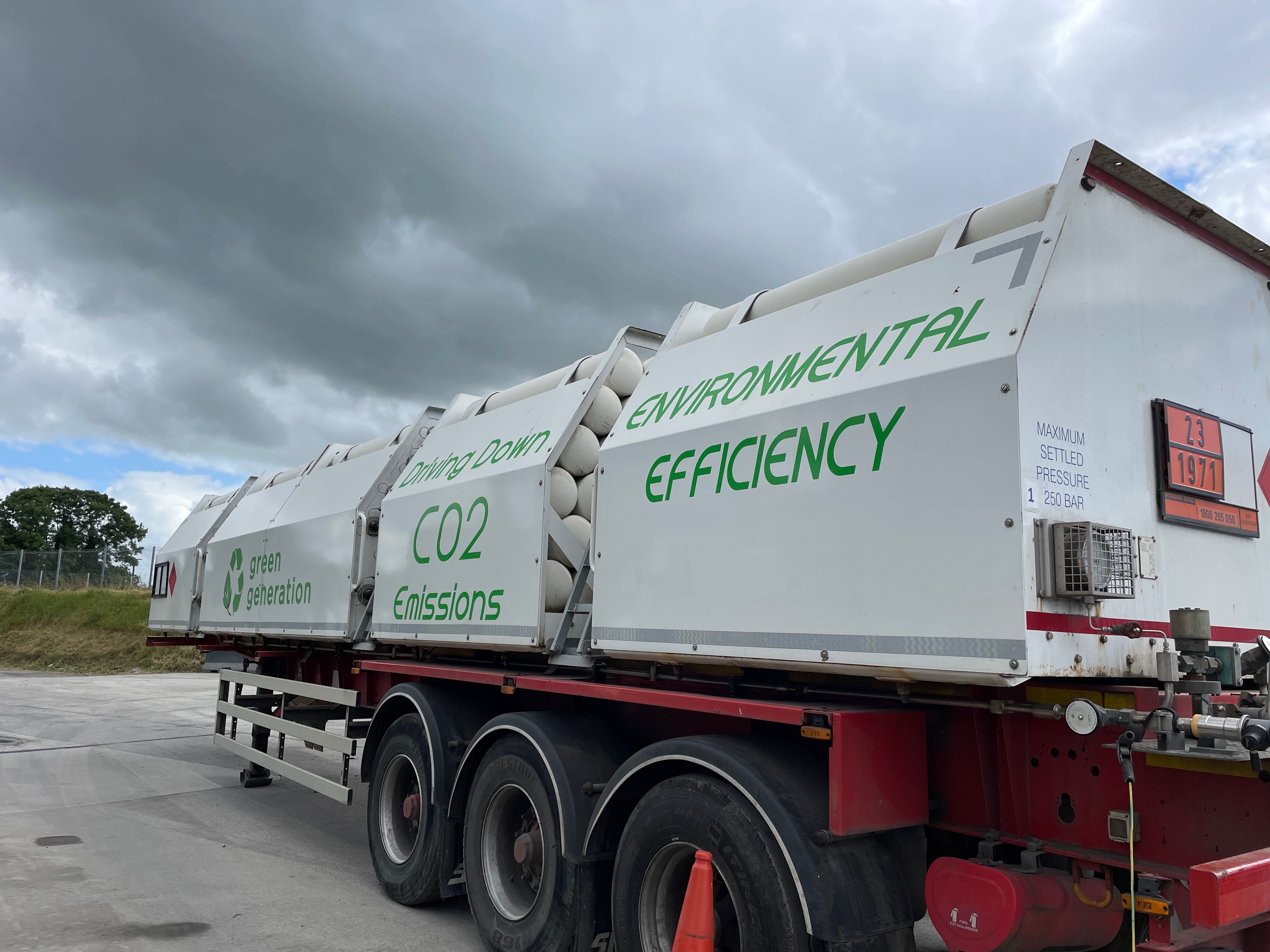
An anaerobic digestion plant is a loud, smelly, active site with massive tanks that can hold upwards of a thousand tonnes of organic waste. The process takes that waste and puts it into a tank with no oxygen and as the material decomposes it creates several different outputs. One of the most valuable is biogas, which can offset dependence on natural gas.
Biogas has become a key part of sustainability goals for Irish distilleries and breweries, since it is an industry that is very difficult to decarbonize because of its dependence on natural gas for steam and high-grade industrial heat. Ireland, which is known for being green—both literally and figuratively—is beginning to fully embrace anaerobic digestion, especially as energy and climate crises loom.
The conflict in Ukraine has also forced Irish businesses to become more creative in sourcing their energy. “The Irish energy sector is really vulnerable. In terms of pricing, we've seen historic highs nearly every quarter for the last 12 months, and so it's an effort really to become a bit more self-sufficient, insulate ourselves from those high volatile market prices that we're seeing,” said James Browne, the environmental and energy manager at Midleton Distillery, which is owned by Irish Distillers and is the largest distillery in the country.

As a nonprofit journalism organization, we depend on your support to fund more than 170 reporting projects every year on critical global and local issues. Donate any amount today to become a Pulitzer Center Champion and receive exclusive benefits!
Big and small drinks companies across the nation are bringing anaerobic digestion to their businesses. Irish Distillers, which is led by Jameson, announced in June 2022 that they will invest €50 million into Midleton Distillery to become carbon neutral by the end of 2026. Amongst other projects, they will begin sending the distilleries’ by-products into anaerobic digestion to produce biogas and use that gas as their primary fuel.
“So in effect, we're becoming more efficient, we're recycling energy within the process, and then the last piece is to generate energy in a more sustainable way,” said Browne.
Using the distillery's by-products—like spent grain and pot ale—and waste to create biogas and then using that gas to power their distillery is the best way to offset their dependence on fossil fuels. “I think it's a great way for them to decarbonize,” said Kevin Fitzduff, the managing director at Stream BioEnergy, which has been developing large biogas plants in Ireland and Northern Ireland since 2009.

Anaerobic digestion is a part of the circular economy that a lot of businesses are striving for. “For example, in the distilling industry particularly, we take the waste streams from the distillery, we produce biogas and can upgrade to biomethane, which can be used as the fuel source for the distilling and brewing process,” said Michael McEniry, project manager at Timoleague Agri Gen, a digester plant in County Cork.
That same waste when processed produces a fertilizer called digestate, which can be used to grow crops that can be put back into the distillery again. “So we’ve got two circles within the circular economy for the distilleries,” McEniry said.
Smaller-scale breweries and distilleries are also incorporating anaerobic digestion into their sustainability initiatives. Wicklow Wolf, a small craft brewery, has been sending their waste to a third-party anaerobic digester since 2019. “It's just kind of a no-brainer,” said John Allen, the production manager at Wicklow Wolf. The small brewery created about 80 tonnes of waste in 2021, not enough to justify having a digester on-site.
When building their distillery in 2018, the Slane Irish Whiskey Distillery, which is much larger in comparison, decided to build an on-site digester. However, the distillery currently does not produce a sufficient amount of waste to run the digester. They considered sending their by-products to become high-grade animal feed in the meantime, but it would require significant changes to maintain a food-grade environment. Animal feed can also be variable during the year according to Gearóid Cahill, Slane’s master distiller.
So why would they build a digester on site instead of outsourcing like other breweries and distilleries?
“We really want to minimize the impact of the locality, actually keep the environmental credentials of our distillery operation under our own control and minimize them as much as possible. If we're tankering our wastewater for anaerobic digestion, long term, then that's actually increasing traffic in the area,” said Cahill.
“So we would have extra traffic on the road, we would be burning extra carbon to get the waste away from the site and so actually, it makes much more sense for us to be able to deal with that on-site,” said Cahill.

To send the waste away to a third-party digester like Wicklow Wolf does requires heavy goods vehicles (HGVs). According to Gas Networks Ireland, these vehicles, as well as buses, are responsible for 30% of all transport emissions.
Biogas could also be a solution for the transport sector. Green Generation, an anaerobic digester in County Kildare, uses a portion of its biogas production to power its HGVs. “We have trucks operating on [biomethane] and several other big haulage companies are transitioning to using natural gas as a starting point because it's better than burning diesel, and then biomethane within that because it can further offset the emissions associated with transport,” said Stephen Nolan, the general manager of Green Generation.
Even as more digesters are being built around the country, there still isn't a broad public understanding of what the digesters do and how they operate. There are concerns about an odor from the waste and the threat of a local environmental impact, as well as accusations that terms like biogas and biomethane are “greenwashed” because they are still gases. However, the biogas that is produced would still have been produced anyways in landfills.
“What we're suggesting is doing this in a more innovative way, but the anaerobic digestion technology is mature, it's been around for centuries,'' said PJ McCarthy, the CEO of the Renewable Gas Forum in Ireland.

“Instead of leaving your biodegradable material, to dispose or degrade naturally, we put it through an [anaerobic digestion] plant absent of oxygen, we capture those gasses, and we upgrade it to biomethane and biogenic CO2 instead of leaving it to the atmosphere,” said McCarthy.
Anaerobic digestion plants would provide rural employment, indigenous energy, and reduce greenhouse gas emissions from agriculture by capturing them, according to Nolan. “So on several levels, we should have anaerobic digestion plants all over the country,” said Nolan. He also said that biogas is reliable and is less affected by variables, like wind and solar power. “Gas is produced 24/7, and it's consistent.”
“Some of the work we've done estimated that if you were to digest absolutely all of the by-products from one distillery in Ireland, you could replace maybe 60-64% of their natural gas consumption,” said Richard O’Shea, a lecturer in sustainability in enterprise in University College Cork and a funded investigator with MaREI, the SFI Research Center for Energy, Climate, and Marine.
“Biogas isn't kind of the silver bullet for decarbonisation in the food and beverage sector,” said O’Shea. It needs to be part of a suite of options, like solar, wind and electric, he said, so even if it can only replace a fraction of natural gas consumption it’s better than replacing nothing.
“It can't solve all the problems," O'Shea said. "But it can play a role.”









